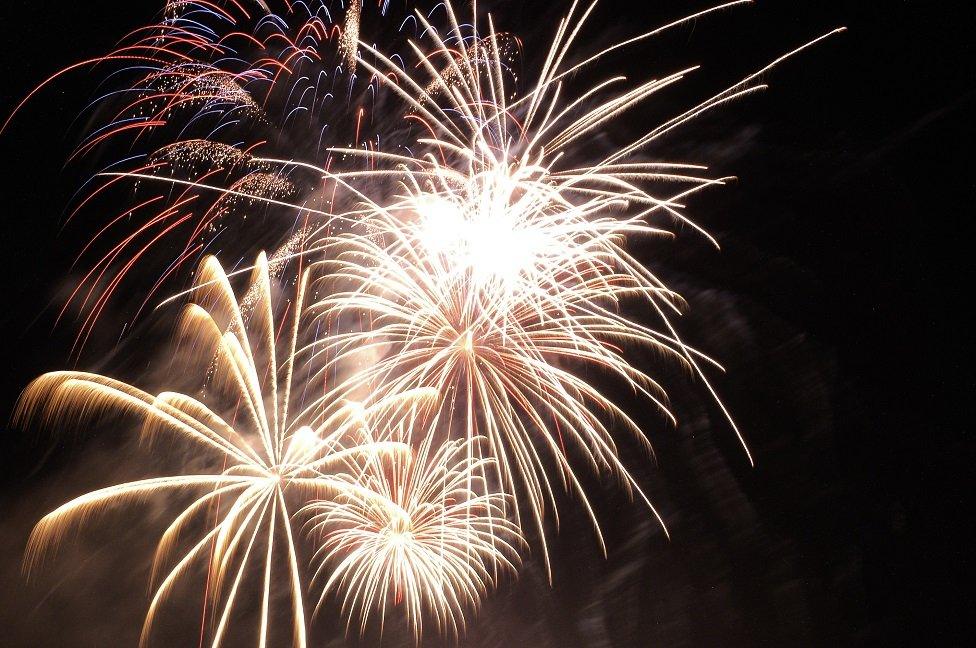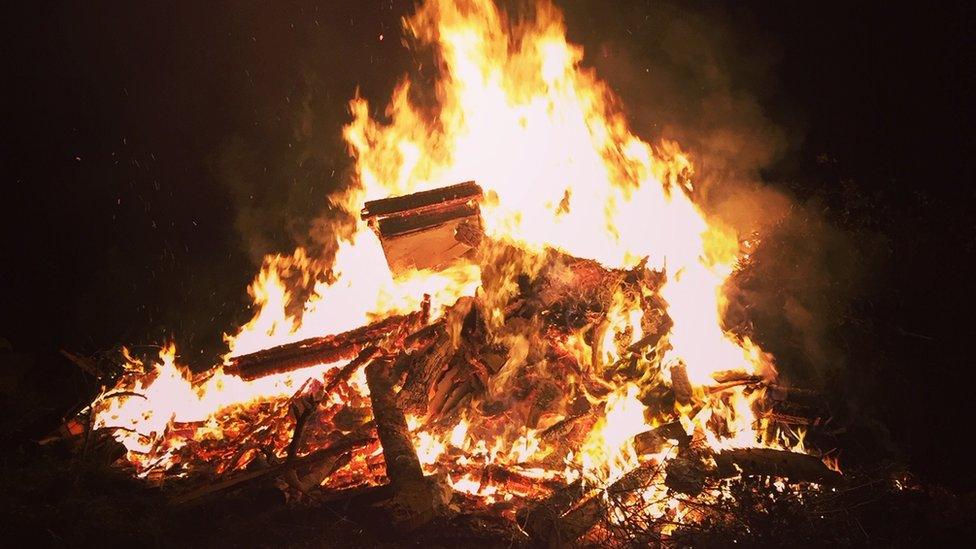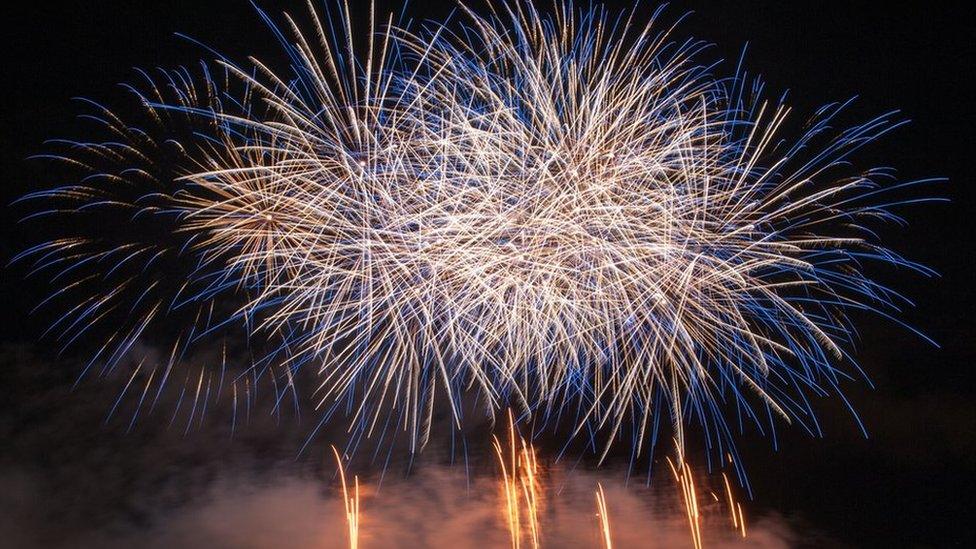No-firework zones and curfews in Scotland under new rules
- Published

Campaigners say fireworks should be banned outside licensed displays
People buying fireworks in Scotland will have to do safety training, pay a fee, and say when and where they will be used, under new plans from the Scottish government.
Community Safety Minister Ash Denham has approved the implementation of recommendations from a review group.
They will create a "fundamental shift" in the way people buy and use fireworks.
"No firework zones" could also be enforced.
The law is to be changed to ban adults giving fireworks to those aged under 18.
Ms Denham updated MSPs on the work of the Firework Review Group, which is led by former chief fire officer Alasdair Hay.
She told MSPs the group's consultation received more than 16,000 responses, including from communities that have been experienced misuse of fireworks.
'Irresponsible' behaviour
Of the responses, 87% favoured a complete ban, and an opinion survey for the review group found that was supported by 58% of Scots.
The community safety minister told MSPs a ban was not considered by the review group because that would be for Westminster legislation.

Riot police are on standby for Bonfire Night
It comes as campaigners condemned "irresponsible" behaviour, claiming rockets had been fired "horizontally on streets" in Glasgow.
Fireworks were also set off at police in Dundee during a major disturbance.
Riot police have since been placed on standby in case of trouble on Bonfire Night.
'Step change needed'
Danny Phillips from Glasgow, who has spearheaded a campaign for restrictions on the sale and use of fireworks, said a recent spate of incidents in Glasgow had involved men "up to age 28".
"We've seen incidents where fireworks were fired horizontally along the street," he told BBC Radio's Good Morning Scotland programme. "Why do we sell anything that requires to have riot police on standby?
"It gets worse and worse every year and it's mostly young men - not kids. It's also people just using them irresponsibly in their back gardens."
The review group - comprised of police, fire and animal welfare representatives - made 11 recommendations in a report published on Tuesday., external
Ms Denham told the Scottish Parliament she "fully endorsed" the findings and would explore how they could be implemented within devolved powers.
Chairman Mr Hay - a firefighter for more than 30 years - said: "We have carefully considered the available evidence, and believe a step change is needed in how fireworks are accessed and used by the general public.
"This is not to prevent adults using fireworks sensibly and safely - rather, to ensure all safety requirements are fully understood and adhered to, and the impact on others has been fully considered."
'Reckless behaviour'
Ahead of 5 November, Police Scotland is launching Operation Moonbeam - its annual response to violence and anti-social behaviour around Bonfire Night.
Senior officers say the operation has reduced criminal activity since 2017, when there was significant violence and disorder.
Public fireworks displays have been cancelled this year due to the coronavirus pandemic.
Assistant Chief Constable Tim Mairs, who is in charge of Operation Moonbeam, said: "Divisional commanders will be given significant levels of specialist resource, including public order-trained officers, to supplement their local policing teams and help them address any issues that arise."
He said officers would work with other emergency services to prevent and respond to reports of criminality.
He added: "We have been engaging with young people extensively through our school inputs to highlight the risks associated with reckless behaviour involving fireworks and of course, alcohol.
"Parents and guardians of young people also have a vital role to play and I would ask you all have very frank conversations with those in your care about the risks of getting involved in violence and disorder."
- Published29 October 2019
